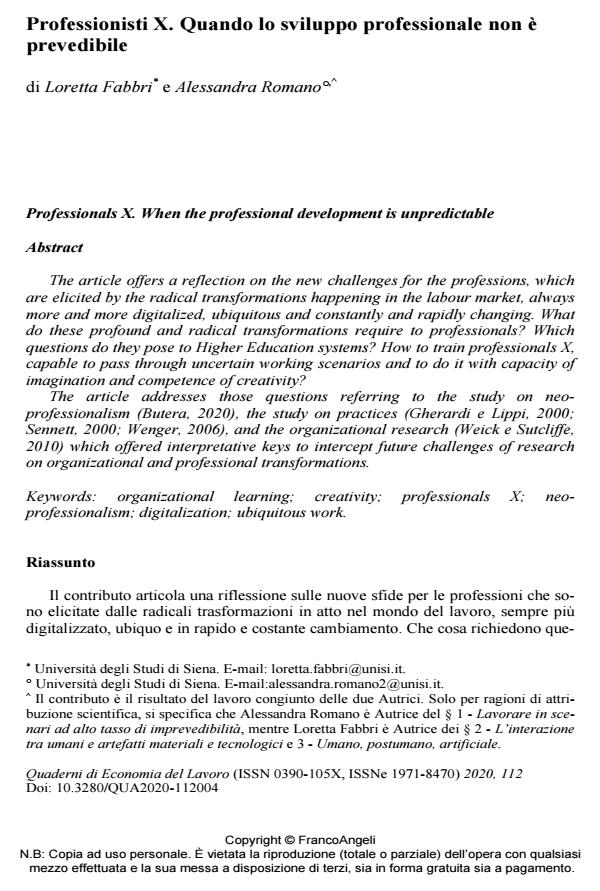Professionals X. When the professional development is unpredictable
Journal title QUADERNI DI ECONOMIA DEL LAVORO
Author/s Loretta Fabbri, Alessandra Romano
Publishing Year 2021 Issue 2020/112
Language Italian Pages 10 P. 49-58 File size 190 KB
DOI 10.3280/QUA2020-112004
DOI is like a bar code for intellectual property: to have more infomation
click here
Below, you can see the article first page
If you want to buy this article in PDF format, you can do it, following the instructions to buy download credits

FrancoAngeli is member of Publishers International Linking Association, Inc (PILA), a not-for-profit association which run the CrossRef service enabling links to and from online scholarly content.
The article offers a reflection on the new challenges for the professions, which are elicited by the radical transformations happening in the labour market, al-ways more and more digitalized, ubiquitous and constantly and rapidly chang-ing. What do these profound and radical transformations require to profession-als? Which questions do they pose to Higher Education systems? How to train professionals X, capable to pass through uncertain working scenarios and to do it with capacity of imagination and competence of creativity? The article addresses those questions referring to the study on neo-professionalism (Butera, 2020), the study on practices (Gherardi e Lippi, 2000; Sennett, 2000; Wenger, 2006), and the organizational research (Weick e Sutcliffe, 2010) which offered interpretative keys to intercept future challenges of research on organizational and professional transformations.
Keywords: Organizational learning; creativity; professionals X; neo-professionalism; digitalization; ubiquitous work.
Loretta Fabbri, Alessandra Romano, Professionisti X. Quando lo sviluppo professionale non è prevedibile in "QUADERNI DI ECONOMIA DEL LAVORO" 112/2020, pp 49-58, DOI: 10.3280/QUA2020-112004